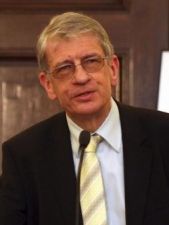What happened to European values?
Share

“You have your principles, we have structural funds” – whose words are these? They were uttered by the French president François Hollande in 2017. From his perspective, the “you” referred to the new EU members states from Central and Eastern Europe, whereas the “we” stood for the countries of the so-called Old Europe. Fateful words indeed. It is worth recalling that they were said in the context of the preamble to the Lisbon Treaty and the hundreds of statements made by western politicians about “European values” supposedly defended by the countries of “Old Europe” against the new member states. Hollande’s words have been borne out recently by the war in Ukraine as the leaders of “Old Europe” have shown more concern for their money than for the EU’s founding principles, while the countries of NATO’s eastern flank, aware of what is at stake for Europe, have called for solidarity, justice, common security and genuine care for those in need.
Russia’s barbaric aggression against Ukraine threw the practice of implementing “European values” in the EU into sharp relief. Let’s take a closer look at the values in question as they are rarely mentioned by name. The recurrent themes in EU discussions are freedom, democracy, fighting discrimination and combating exclusion. Lately, however, it has been more pressing to curb discrimination of male individuals who want to win at women’s sports events and use female toilets. It was more important to ensure the freedom to talk gibberish about human nature not to discriminate against “any views” as guaranteed by the Charter of Fundamental Rights. The view that there is truth, good and justice or even that there is reality rather than its multiple narratives has often been pigeonholed as “fascism”, in line with communist nomenclature, and considered not worth defending.
How do these values look in the light of the recent demonstration of Russian pride on the streets of Berlin? Those Russians who live in Germany, and are thus not subject to Putin’s terror, did not think it right and proper to condemn the crimes committed by the Kremlin. Instead they followed the ideology of “non-discrimination” to defend their imperial pride manifested by the hundreds of people who were raped and horrendously murdered in Bucha, Hostomel and Irpin. Was no one bothered by this?
Inspired by Isaiah Berlin, Western Europe seems to take it for granted that freedom should not be used to pursue a higher purpose lest that purpose becomes an obligation and a threat to freedom. Inspired by Friedrich Nietzsche, the sophisticated representatives of the West have positioned themselves in a strange place “beyond good and evil”. It it really so comfortable and safe out there? After all, it is the domicile of wrong-doers and criminals such as Putin and his clique. Who in today’s Europe believes that good, evil, truth and justice really exist and require sacrifice; that there is a price to pay for comfort and freedom; that freedom without responsibility is pointless anarchy?
Finally, who in the EU has spoken up for common sense, respect for natural law, truth and justice? Were these not mainly the politicians of Central and Eastern Europe, who have been accused of “fascism” and having links to Putin? Who has provided the most funding to Putin’s Russa? Poland, the Czech Republic, Slovenia? To give the correct answer, we would have to point at people driven by their own financial and political interests for whom European values are so many empty words. I will spare the reader the long list of western politicians. Suffice it to say that when you violate principles with an eye for the main chance, you may lose both your good name and the chance. The dilemma is well-known from European history. It was mentioned by Winston Churchill in his comment about Neville Chamberlain’s efforts to “save peace” on the eve of WW2.
A lot had to change for things to remain the same. The providers of huge funds feeding Putin’s war machine still lecture Poland on the rule of law and pretend to see no difference between the defence against the migrants invading the EU from Belarus and the help offered to Ukrainian refugees.
Prof. Wojciech Roszkowski
Professor of humanities, academic teacher, professor at the Institute of Political Studies of the Polish Academy of Sciences. Author of publications on Polish history of the 20th century.

The text is simultaneously published in the Polish monthly “Wszystko Co Najważniejsze” as part of a project carried out with the Poland’s central bank (Narodowy Bank Polski) and the Institute of National Remembrance.
„Foto: INM”.



